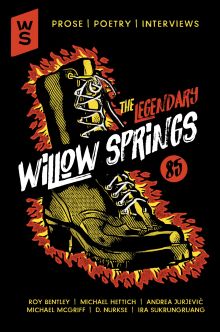
About Eric Altemus
Eric Altemus is a graduate of Oregon State University’s Master of Fine Arts program in Creative Writing, and Indiana University, where he worked for the Herman B. Wells Library and Indiana Review. His most recent fiction has been published in Sou’wester and The Rappahannock Review. An employee of the University of Michigan Library, he lives near Ann Arbor, where he is currently finishing a collection of short stories.
A Profile of the Author
Notes on “Three Finnish Scenes”
“Three Finnish Scenes” is inspired by my experience at the University of Vaasa, Finland, in the summer of 2011. It’s a small coastal college town about four hours northwest of Helsinki. I was there as part of an intensive Finnish language program during my undergraduate years at Indiana University. My major was English, with a focus in editing and publishing, and at the time, I was interested in translation as well—this was all during the Scandinavian crime boom, when Stieg Larsson’s Millennium trilogy was popular. With the Finnish literary landscape so untouched for English-speaking readers, I considered pursuing a graduate degree in translation.
The trip turned out to be a disaster: I dealt with homesickness and a significant health issue that I had difficulty managing while living abroad. Eventually, I realized that I was completely in over my head: most Finns already spoke fluent English, and I had no real claim to translation. That being said, Vaasa was an important and humbling experience for me, one I’m very grateful for, because it led me to focus solely on fiction. I ended up drafting these pieces while finishing my MFA at Oregon State, where eight were submitted to my final graduate workshop. I revisited these three scenes a few years later in Michigan, where they came to be what they are now.
Music, Food, Booze, Tattoos, Kittens, etc.
My father’s in radio broadcasting, and I was raised in a household where I was exposed to lots of Oldies music from a young age: Philadelphia soul, the British Invasion, Billboard-charting hits from the Sixties and Seventies, mostly, because that was what people wanted to hear. I moved around the country often as a result of his career and spent a lot of time in the car. If we weren’t listening to an Oldies station, it was typically country, my mother’s preference. It’s no surprise, then, that music became a big part of my creative process. I often draw a lot of inspiration from records that I’m listening to while drafting or revising.
Like most teenagers, I rebelled with my music choices, gravitating toward Internet file sharing communities and genres like black metal, drone, and hardcore. I eventually came to appreciate some of the groups and singers that I grew up with, though, like The Beatles, The Mamas and the Papas, Marvin Gaye, and Otis Redding. For these short pieces, I was listening to a lot of music from Fonal Records, a Finnish label that reminded me of Vaasa’s endless summer sunlight: TV-resistori’s Serkut rakastaa paremmin and Paavoharju’s Laulu laakson kukista.


